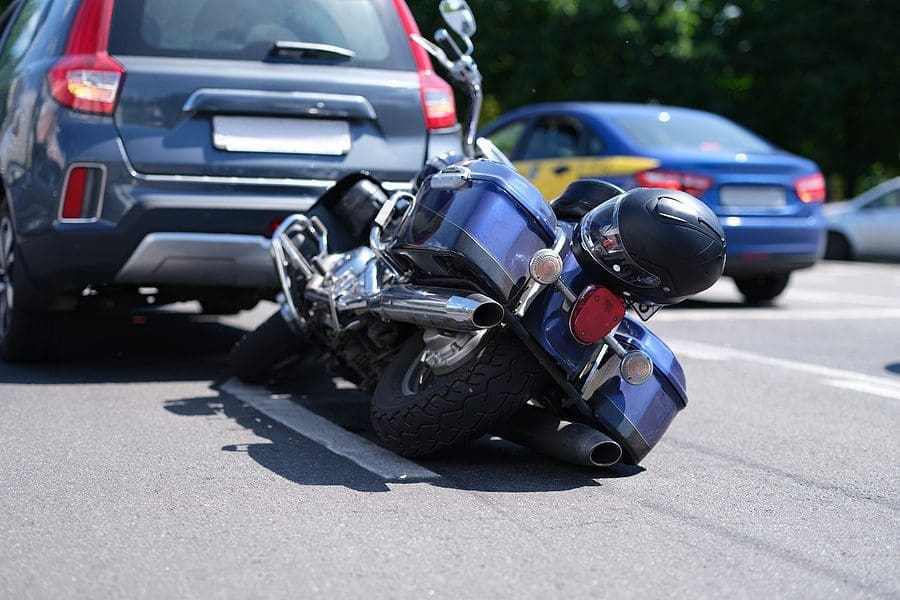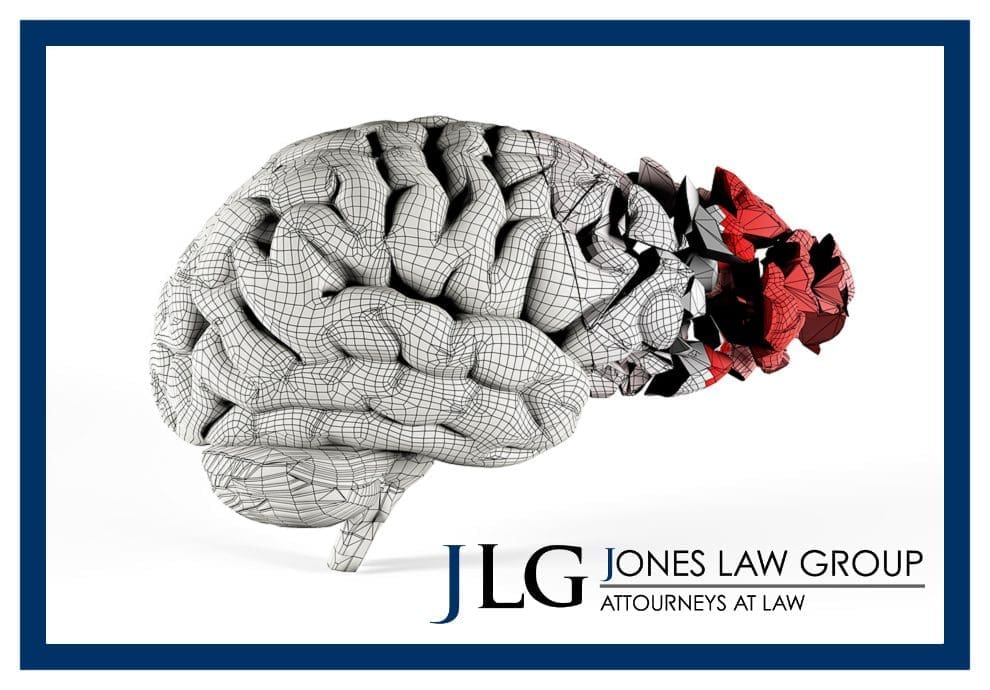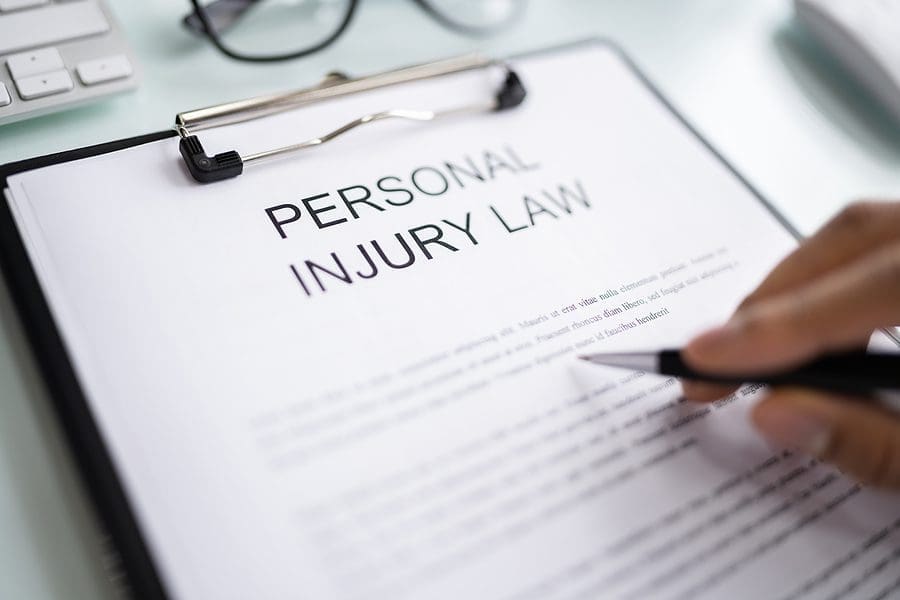JONES LAW GROUPYour Lawyers for Life! Personal Injury Law Firm in St. Petersburg

Any sort of personal injury case can be complex, but a motorcycle accident is among the most complicated. Many different parties might have played a role in contributing to the wreck, and the consequences can be much worse. That’s why you need an attorney with a deep knowledge of Florida motorcycle laws. You’ll find that […]
Call our personal injury law office directly at (727) 512-9847
At Jones Law Group in St. Petersburg, FL, we would like to hear from you. Contact us for a free personal injury case consultation.
Call our personal injury law office at (727) 512-9847
Get educated on the Florida's personal injury laws and more.
Any sort of personal injury case can be complex, but a motorcycle accident is among the most complicated. Many different parties might have played a role in contributing to the wreck, and the consequences can be much worse.
That’s why you need an attorney with a deep knowledge of Florida motorcycle laws. You’ll find that expertise from the Jones Law Group. We’ll put our knowledge and skill to work for you and do all we can to help you obtain maximum compensation. Contact us online or call (727) 571-1333 for a free consultation.
Understanding motorcycle accident law involves knowledge of the specific laws, regulations, and legal principles that apply to motorcycle accidents, which can differ from those related to car accidents. Here are some key aspects to consider when seeking a comprehensive understanding of motorcycle accident law:
Motorcycle accident law encompasses statutes and regulations that govern the operation of motorcycles on public roads. These regulations typically cover requirements such as motorcycle licensing, registration, equipment standards, helmet laws, and rules of the road specific to motorcycles.
An attorney with a thorough knowledge of the law will give you a much better chance of getting the money you deserve.
Understanding the legal principles of negligence and liability is crucial in motorcycle accident law. Negligence refers to the failure to exercise reasonable care, resulting in harm to others.
Determining negligence involves evaluating factors such as duty of care, breach of duty, causation, and damages. Knowing how negligence applies to motorcycle accidents is essential in establishing fault and liability, whether it involves the motorcyclist or another party.
Motorcycle accidents present unique factors and challenges that differ from car accidents. These include the smaller size and visibility of motorcycles, the different handling characteristics of motorcycles, and the specialized skills required to ride them.
Recognizing these unique aspects is crucial for investigating, reconstructing, and understanding the dynamics of motorcycle accidents.
Motorcycle accidents differ significantly from car accidents due to the unique characteristics and dynamics of motorcycles. Understanding these differences is essential when investigating, resolving, or seeking compensation for motorcycle accidents.
Here are some key ways in which motorcycle accidents are distinct from car accidents:
Motorcyclists are much more vulnerable than car occupants due to the lack of protective barriers around them. While cars have reinforced frames, seat belts, airbags, and other safety features, motorcycles offer minimal protection. In an accident, motorcyclists are more exposed to direct impact with other vehicles, objects, or the road surface.
Motorcycles have a significantly smaller profile compared to cars. Their smaller size makes them less visible to other drivers, increasing the risk of accidents caused by a lack of awareness. Drivers may have difficulty judging motorcycles’ speed, distance, or position. This makes it more challenging to anticipate and avoid collisions.
Bikes handle differently from cars. They’re more agile, have better acceleration, and can quickly change direction. However, this increased maneuverability can also pose challenges.
Motorcycles are more susceptible to instability, particularly during abrupt maneuvers or adverse road conditions such as potholes or wet surfaces. These handling differences can contribute to unique accident scenarios.
Riding a motorcycle requires specialized skills and training. Motorcyclists, for example, must learn how to balance, steer, and control a bike effectively.
They must also anticipate potential hazards, be aware of blind spots, and have advanced defensive driving techniques. The expertise and experience required to safely operate a motorcycle is higher than that needed for driving a car.
Due to the lack of protective barriers and the increased exposure to impact, injuries sustained in motorcycle accidents are often more severe than in car accidents. Motorcyclists are at a higher risk of sustaining traumatic brain injuries, spinal cord injuries, fractures, severe abrasions (road rash), and internal injuries.
These severe injuries can result in long-term disabilities, extensive medical treatments, and significant financial burdens.
Here are some key reasons why injuries are often more severe for motorcyclists:
Motorcycles lack safety features commonly found in cars, such as airbags and seat belts. These safety features help absorb impact and restrain occupants, reducing the severity of injuries.
The absence of these features increases the risk of motorcyclists being thrown from their bikes or colliding with other vehicles or objects, leading to more severe injuries.
The lack of physical restraints like seat belts means that the force of impact can propel them off the motorcycle and onto the road or into other objects. Ejection increases the chances of sustaining severe injuries, including head trauma, spinal injuries, fractures, and extensive road rash.
In a collision, there’s minimal protection to absorb the force of the impact. This can result in severe injuries to the head, neck, spine, chest, abdomen, and limbs and internal injuries caused by sudden deceleration forces.
Cars are designed with crumple zones that absorb and distribute the energy of a crash, protecting the occupants. On the other hand, motorcycles lack this structural design, making the impact forces more directly transmitted to the rider’s body.
After the initial collision, motorcyclists can be at risk of hitting other vehicles, objects, or the road surface, further exacerbating their injuries. These secondary impacts can lead to multiple injuries, including fractures, head injuries, and severe abrasions.
There’s a prevalent assumption that motorcyclists are reckless or engage in risky behaviors, leading to a higher probability of being blamed for accidents even when they are not at fault.
This bias can complicate the process of seeking compensation for motorcycle accident victims. It is essential to gather strong evidence and work with an experienced attorney who can challenge these biases and fight for motorcyclists’ rights.
Insurance adjusters play a crucial role in evaluating and processing claims after accidents. However, some insurance adjusters may lack a deep understanding of motorcycles and how they operate. This lack of knowledge can result in undervalued claims or incorrect assessments of fault.
Motorcyclists need to work with attorneys who have experience dealing with insurance companies. They should also find lawyers who can effectively communicate the unique aspects of motorcycle accidents to ensure fair treatment and compensation.
Given the complexities surrounding motorcycle accidents, it’s crucial to find an attorney specializing in this area of law with a proven track record of successfully handling cases. An experienced attorney will gather evidence, negotiate with insurance companies, and, if necessary, litigate the case to protect the rights and interests of motorcycle accident victims.
A Jones Law Group attorney is ready to do all the above and more to help you get the money you deserve. Schedule a free case review by calling (727) 571-1333 or using our online
What is an Accident Reconstruction Expert? Anyone who has been involved in an accident knows that the police come out, take statements, examine the scene and the cars involved. They may or may not measure skid marks and other physical evidence. At the conclusion of their investigation, they might cite one or more drivers for […]

An estimated 1.5 million Americans develop a traumatic brain injury every year. These injuries happen when the brain’s normal functions are disrupted. A disruption like this can occur when a person’s head is impacted in some way. That can happen when the head forcefully meets a surface or sustains a blow. If someone’s head is […]

By: Heath C. Murphy + – Personal Injury Concussions are probably the most common injury following a motorcycle accident. Unfortunately, they are one of the more ignored injuries that are suffered by bikers. It isn’t because doctors do not care or are incompetent. It is just that immediately following a motorcycle crash, the broken bones, […]

When some people hear the term “road rash,” their first inclination is to assume this is a relatively minor injury. But any motorcyclist who’s ever had road rash due to an accident knows it’s anything but. Road rash can be excruciating, leading to potentially dangerous complications. The attorneys with the Jones Law Group can help […]

Enduring a personal injury can be devastating, leaving victims dealing with physical pain, emotional distress, and financial hardships. During such challenging times, seeking the assistance of a skilled personal injury attorney can make a significant difference in protecting your rights and ensuring you receive fair compensation for your losses. The following are just some of […]

Summary When most people think about truck accidents caused by large trucks, they usually picture semi-trucks that weigh 80,000 pounds. But there are many kinds of large trucks, and they can all result in devastating accidents leading to catastrophic injuries – and worse. The following is a look at some of these trucks and information […]
Speak with us before time runs out! In Florida, you have a limited window to file a personal injury case, so speak to an Attorney today.
Call our personal injury law office directly at (727) 512-9847
Jones Law Group is a dedicated personal injury lawyer in St. Petersburg, FL, serving the Tampa Bay area since 2006. Our experienced attorneys specialize in car accidents, slip and fall cases, employment law disputes, construction law issues, and overtime wage claims, fighting for maximum compensation on a contingency fee basis. Contact us for a free consultation to discuss your case.
Call our personal injury law office at (727) 512-9847
© Copyright 2006–2025 Jones Law Group Attorneys at Law. All rights reserved. Privacy Policy Terms of Use
Attorney Advertising.
The information on this website is for general information purposes only. Nothing on this site should be taken as legal advice for any individual case or situation. This information is not intended to create, and receipt or viewing does not constitute, an attorney-client relationship. Past results do not guarantee similar outcomes.
Are you injured or wronged and interested in a consultation? Fill out the form for a free consultation with us.